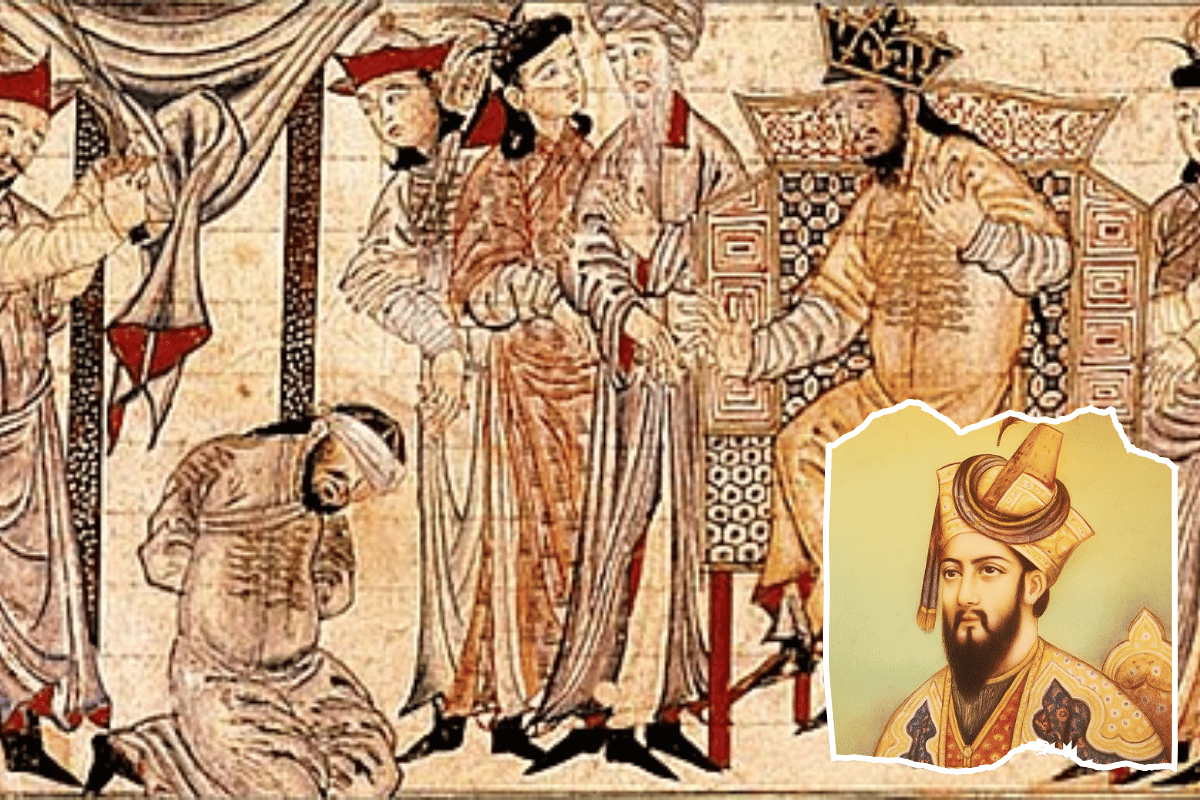
India has just implemented the Citizenship Act, better known as the CAA. This article will explain India’s Citizenship Amendment Act and counter the false narratives being peddled by those with motivated agendas against the progress and development of Bhārat (India).

This article exposes, using facts, every news article, report and person claiming India will no longer allow Muslims citizenship and/or throw out Muslims from India.
All of the findings below are publicly available. This means the events in India which occurred in January and February of 2020, particularly in New Delhi, were cunningly orchestrated by spreading fake news and lies to mislead the world, in particular the Muslim community, and set up to cause riots to malign India and the Narendra Modi led BJP government.
The original Citizenship Act of 1955
Shockingly, no media reports have even mentioned the original Act that was being amended. It does beg the question of why they have ignored an integral part of the Act.
Citizenship Act 1955 –https://indiacode.nic.in/bitstream/123456789/4210/1/Citizenship_Act_1955.pdf
This is the official, publicly available Citizenship Act 1955 of India.
It says that a person can become a citizen of India by 5 means;
1. Citizenship by birth
2. Citizenship by descent
3. Citizenship by registration
4. Citizenship by naturalisation
5. Citizenship by incorporation of territory
Nowhere does it say that Muslims cannot apply for citizenship. Anyone can apply for citizenship under the Citizenship Act 1955 — except illegal immigrants in India.
Why was there a need for an Amendment?
The Citizenship Amendment Act 2019 is an amendment/addition to the already existing Act of 1955 mentioned above. It provides a path to citizenship for the religiously persecuted minorities, namely Hindus, Sikhs, Buddhists, Jains, Parsis and Christians, from Afghanistan, Bangladesh and Pakistan. It is for those religious minorities who faced persecution or fear of persecution in the aforementioned countries and entered India on or before 31 December 2014.
Related Stories
- Persecution of Hindus in Pakistan
- Persecution of Hindus in Bangladesh
- Factsheet: Persecution of Hindus
- Report: Pakistani Hindus
Now here is the legal issue and the need for the amendment: those who fled to India due to religious persecution are technically illegal immigrants and therefore under the original Citizenship Act of 1955, cannot be granted citizenship. So then what? Should the Government of India send them back to Afghanistan, Pakistan or Bangladesh where they will be subject to the very same persecution that they fled from in the first place? Of course not, and this is why the amendment was brought in. It does beg the question, however: where are all the human rights activists? Why is there no outcry or global campaign over the persecution of religious minorities in these countries?
What about Muslims?
Muslims, including those from the named 3 countries, can apply for Indian citizenship as normal under the rules of the Citizenship Act 1955, but will not be fast-tracked or granted citizenship for the reason of religious persecution in those countries. They are not a religious minority (non-Muslim) in the named 3 countries which are Islamic republics with a majority Muslim population, and therefore do not fall under the amendment of 2019.
To Summarise
After doing some research, it is clear that there was some very lazy and irresponsible journalism or worse, a deliberate attempt to mislead, to malign India and to cause communal tensions.
The Citizenship Act and its amendments;
- Provide a legal passage for the religiously persecuted minorities of Afghanistan, Pakistan and Bangladesh to become citizens of India
- Does not state, indicate or imply that Muslims will be stripped of their citizenship and/or thrown out of the country
- Will, as before allow all, except illegal immigrants, including Muslims to apply for Indian citizenship
Key Facts
Key points of CAA (Citizenship Amendment Act) in simple words:
1. The CAA provides a pathway to Indian citizenship for the persecuted illegal migrants who are Hindus, Sikhs, Buddhists, Jains, Parsis, and Christians from Afghanistan, Bangladesh, and Pakistan.
2. These people are exempted from being treated as illegal migrants under the Act, provided they have been exempted by the Central Government under certain other laws (Passport (Entry into India) Act, 1920, and the Foreigners Act, 1946).
3. For these people, the requirement for residence or government service in India for citizenship by naturalization is reduced to “not less than five years”, instead of the previous requirement of “not less than eleven years”.
4. The cut-off date for eligibility is December 31, 2014. This means that only those who entered India on or before this date can apply for citizenship under the CAA.
5. The CAA does not apply to all areas of India. It excludes certain areas in the Northeast, including tribal areas of Assam, Meghalaya, Mizoram, and Tripura, as included in the Sixth Schedule to the Constitution, and the area covered under “The Inner Line” notified under the Bengal Eastern Frontier Regulation, 1873.
6. The CAA does not affect the rights of any citizen of India, including Muslims. It only provides a pathway to citizenship for certain illegal migrants who belong to specific religious communities and have entered India from specific countries.
7. The CAA does not automatically grant citizenship to all illegal migrants who belong to the specified religious communities. They still need to apply for citizenship and fulfill certain conditions, such as proving their identity, residence, and good character.
8. The CAA does not provide any protection to illegal migrants who belong to other religious communities (not specified in the list), who have entered India from the same countries. They will continue to be treated as illegal migrants and may be subject to deportation or other legal actions.
Documentary | Stateless
Watch the eye-opening documentary ‘STATELESS’ for the first time on X in the context of #CAA (Citizenship Amendment Act, India). We thank @AnupamPKher for being the chief guest at the premiere of filmmaker @dnikhilsingh's documentary in July 2021. pic.twitter.com/w8hFZ384xF
— IndicDialogue (@indicdialogue) March 14, 2024
Further Reading
Citizenship Amendment Act – What It Is and What It Is Not
The article defends the Citizenship Amendment Act (CAA) in India, stating it will not revoke citizenship of any Indian citizens, including Muslims, as assured by Home Minister Amit Shah. It argues the law aims to provide citizenship to persecuted religious minorities from neighboring countries like Pakistan and Bangladesh in the aftermath of Partition based on religion, when promises of equality were violated. The law is portrayed as a secular and reasonable measure allowed under Article 14, not favoring any particular religion. It explains why initially only minorities from three countries were included, clarifies the Rohingya’s exclusion, and assures protection of Article 371 for northeastern states.
https://arisebharat.com/2024/03/11/caa-what-it-is-what-it-is-not/
Delhi Haj Committee Chairman Kausar Jahan’s statement
On the CAA notification, Delhi Haj Committee Chairman Kausar Jahan says, “I welcome this. This is an act to give citizenship and not take it away. The condition of Non-Muslims in our neighbouring countries like Pakistan and Bangladesh is not good. If the govt wants to give them a respectful life, what is the problem with it? The Muslim community will not have any problem with this, there is no need to panic.”
#WATCH | Delhi: On the CAA notification, Delhi Haj Committee Chairman Kausar Jahan says, “I welcome this. This is an act to give citizenship and not take it away. The condition of Non-Muslims in our neighboring countries like Pakistan and Bangladesh is not good. If the govt wants… pic.twitter.com/eMoJhep6L2
— ANI (@ANI) March 11, 2024









